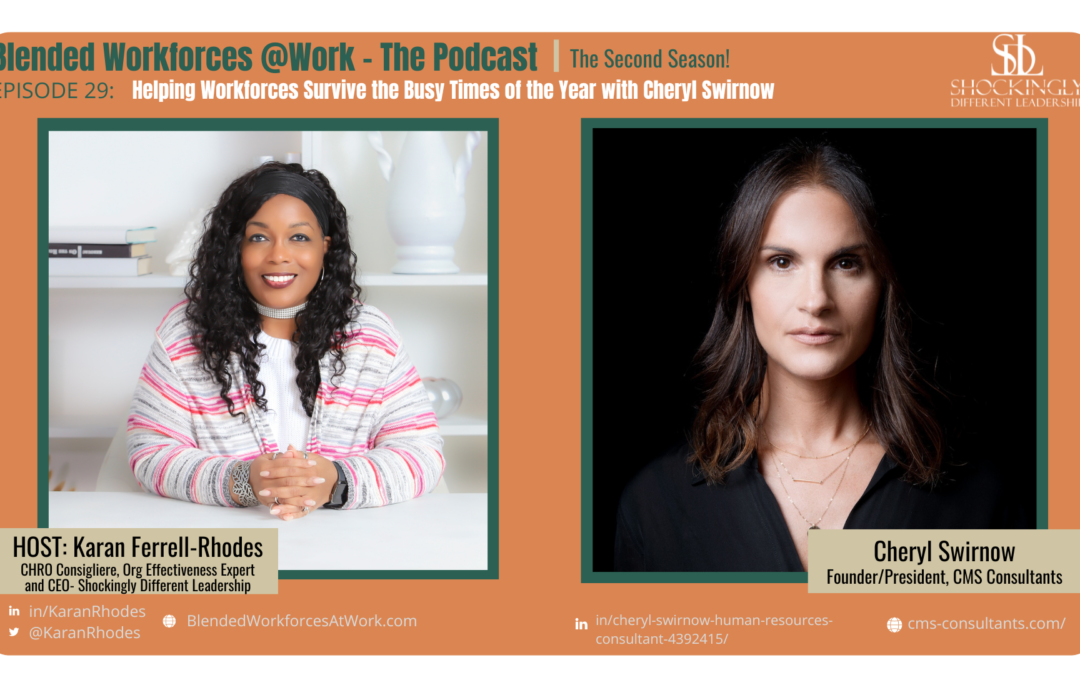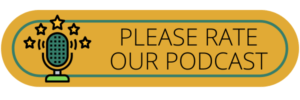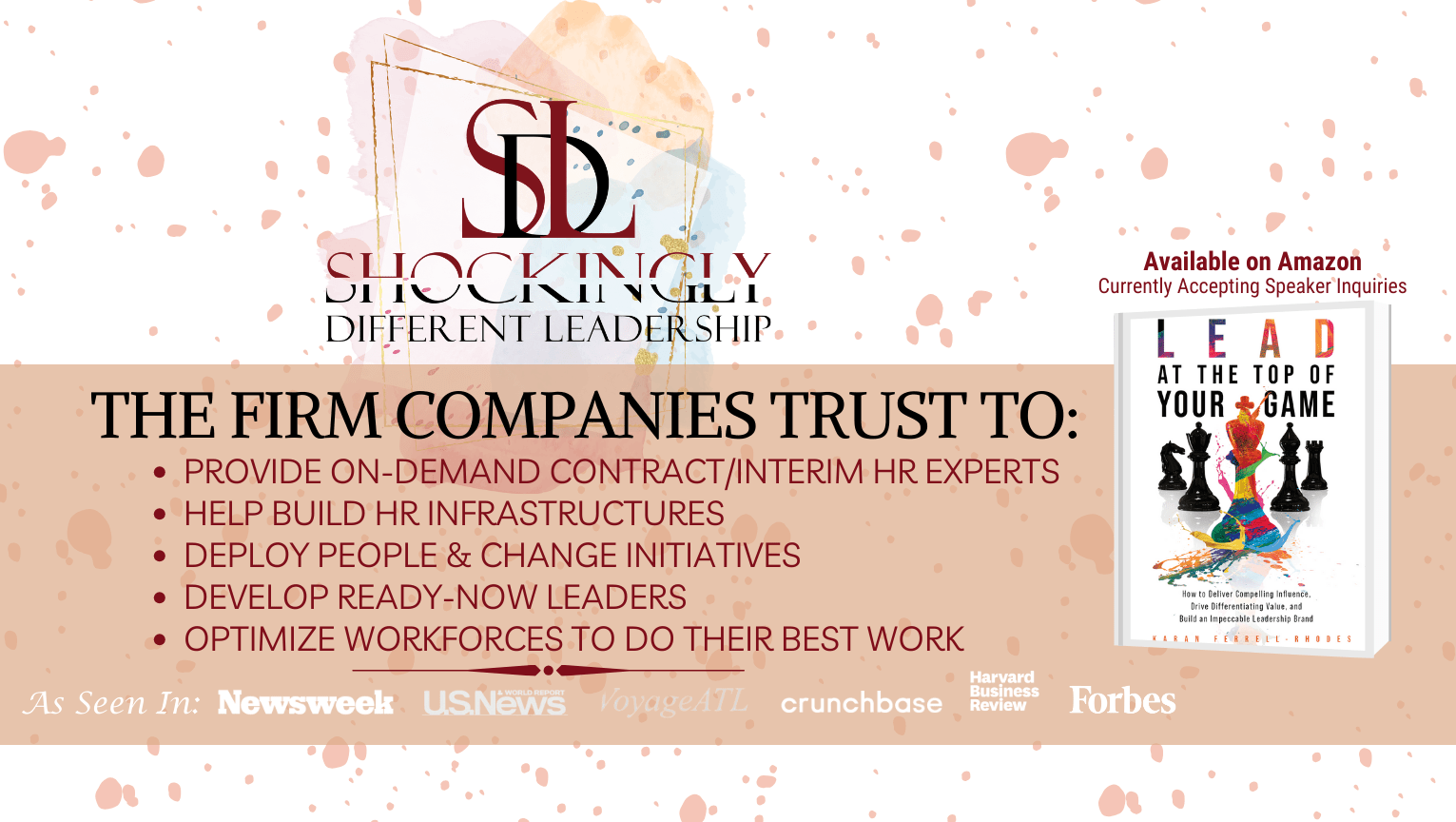IN THIS EPISODE, KARAN FERRELL-RHODES INTERVIEWS CHERYL SWIRNOW.
The busiest times of the year can overwhelm employees and HR teams alike, requiring companies to rethink how they support their workforce. How can businesses navigate these peak seasons effectively while maintaining productivity and employee well-being? Cheryl share insights on optimizing HR processes, managing workload surges, and fostering a resilient workforce.
Cheryl Swirnow is the founder of CMS Consultants. With experience at top brands like Four Seasons, Nike, and Rent the Runway, Cheryl dives into practical strategies for handling high-demand periods, preventing burnout, and ensuring employees feel supported throughout the year.
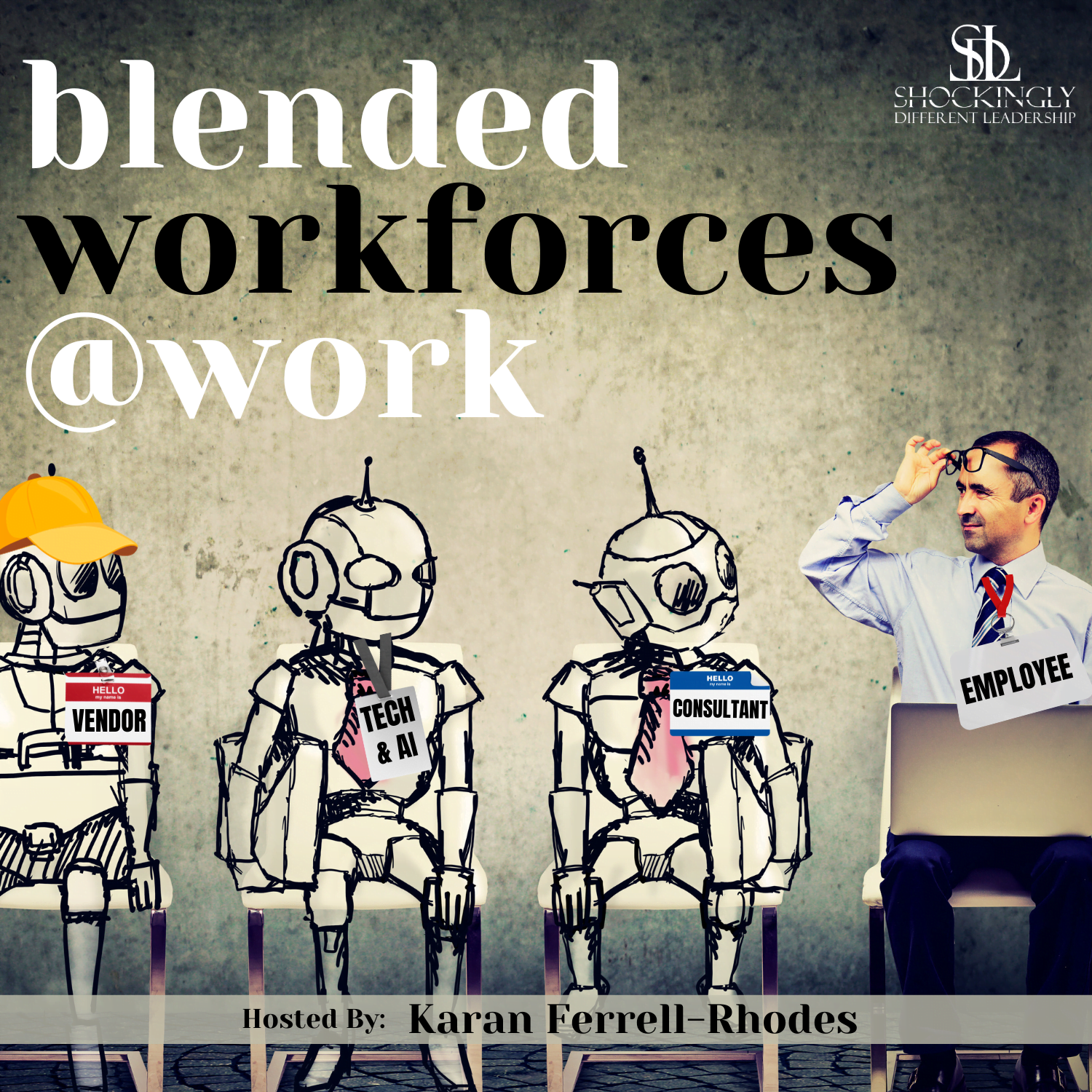
Posted by
SDL Media Team
Rather view our video podcast?

WHAT TO LISTEN FOR:
- How can companies successfully integrate blended workforces?
- Why is proactive HR planning important, and how can businesses avoid last-minute crises?
- Why should organizations rethink traditional benefits and policies to stay competitive?
- How does leadership play a role in preventing burnout and promoting work-life balance?
“Our job as consultants is to be able to parachute into any situation and hit the ground running.”
FEATURED TIMESTAMPS:
[03:01] Cheryl’s journey from corporate HR to founding her own firm.
[09:49] The most significant challenges consultants face when working with clients.
[15:36] How HR leaders can prepare for the busiest times of the year.
[19:09] Understanding and addressing burnout across generations.
[22:10] How companies can ensure fair and equitable compensation structures.
[27:48] Signature Segment: Cheryl’s tactic of choice: Leading with intrapreneurship.

ABOUT CHERYL SWIRNOW:
Cheryl Swirnow, Founder and CEO of CMS Consultants, is a seasoned HR leader with a reputation for transforming organizations by tackling complex HR challenges and delivering impactful results across all levels of business. With a career that includes working with prestigious brands like Four Seasons Hotels and Resorts, Quintessentially, Nike, and Rent The Runway, Cheryl has developed a keen ability to address issues such as employee burnout, manage layoffs during economic downturns, and train executives to enhance leadership capabilities.
LINKS FOR CHERYL:
- Website: https://www.cms-consultants.com/
- LinkedIn: https://www.linkedin.com/in/cheryl-swirnow-human-resources-consultant-4392415/
ADDITIONAL RESOURCES FOR YOU:


Episode Sponsor
SDL is the go-to firm companies trust when needing to:
- supplement their in-house HR teams with contract or interim HR experts
- implement leadership development programs that demonstrate an immediate ROI and impact on the business

Episode 29 | Helping Workforces Survive the Busy Times of the Year with Cheryl Swirnow
Cheryl Swirnow 00:00
It is so fulfilling when somebody comes to us with their “Is this a thing?” Or, “I have a sense that this is a problem” and their gut is right, and you are saying you are on the right track, and let’s help you get there, building the confidence in somebody, whether that’s an executive, a manager, an IC, whoever it is, to just, again, trust their gut, know that they’re on the right path. You really see people shine at work when they feel like, Oh, I’m doing this okay, I’m not messing up in the way that I think I am in my head. Giving people that confidence is just so fulfilling again, particularly when they’re on the right track. And a lot of times they are.
Karan Rhodes 00:01
Blended workforces are one of the hottest talent strategies today, where employers are using a mix of traditional employees with external resources like independent contractors, coaches, consultants, vendors, and technology solutions, all in order to enhance competitiveness, ensure cost flexibility, and expedite business goals. But how are the successful companies infusing blended workforces into their business strategy? And what are the critical success factors and pitfalls to avoid during implementation? And on the flip side, what does it really take for suppliers to improve their chances of finding and landing contract opportunities? The devil is in the details, my friends! I’m your host, Karan Ferrell Rhodes, and it’s time to get smarter about Blended Workforces at Work!Hello, my superstars. This is Karan, and welcome to another episode of the blended workforces at work podcast. We have an amazing show for you today. We are absolutely thrilled to feature Cheryl. I have to look down because I know I’m gonna murder her name Cheryl, Swirnow, no, and she might correct me, but she is the founder of CMS Consultants, which is a human capital firm that focuses on the essentials of people support everything from compliance to employee relations to performance management. And I did see their website and looked up a lot of what they’re doing, and they do so much more. So we’re going to get more about what CMS Consultants helps organizations with, because you might want to have Cheryl and speed dial. But I thought it was also interesting that before founding her firm, Cheryl worked at some really prestigious brands, such as the Four Seasons, Nike, and Rent the Runway, some of our faves she’s experienced on both sides of the blended workforces table. So we are just absolutely thrilled to hear some of her insights on what’s going on on maybe both sides of the world of work. So welcome to the podcast, Cheryl,
Cheryl Swirnow 02:05
thank you. Thank you so much for having me.
Karan Rhodes 02:07
Oh, we’re just honored to have you. I can’t wait to dig in and have a fantastic conversation on what we’re seeing right now on the horizon in the world of work. But before we do so, one of the things we love to do is just learn a tad more about our guests. So for just as much as you feel comfortable, would you mind giving us a sneak peek into your life outside of work?
Cheryl Swirnow 02:31
Yeah. So I live in Manhattan, and I have been here for 20 plus years, and I have a husband and two children, ages 11 and nine, two boys, so I feel like much of my life outside of work is running from one sport to the other. And we got a dog, so we also have a four year old. I still call him a puppy, but I’m sure he’s past that point, but has a lot of puppy energy, so that takes up a lot of time as well. And then I like to zone out and watch bad reality TV. I feel like that is the perfect
Karan Rhodes 03:04
Do you?!
Cheryl Swirnow 03:05
Yes, like HR world, where you’re dealing with real issues and helping employees, and then you go and you just watch nonsense.
Karan Rhodes 03:14
Wow
Cheryl Swirnow 03:15
Yes.
Karan Rhodes 03:16
Well, I won’t say I’m a reality TV buff, but I am a movie buff. One of my dreams is to someday be a movie critic. I don’t know who would want to hear my opinions on things, but I would love to to be a movie critic for the lay person or the everyday person. So
Cheryl Swirnow 03:36
I love that. I love that.
Karan Rhodes 03:39
awesome. Well, thank you so much for sharing. And the ages of your kids are such great ages. My daughter just graduated from college, so the time flies. Let me tell you, so enjoy while you can Well, Cheryl, let’s start by helping our listeners know a little bit more about your background, maybe a bit about, just a ton about your corporate experience, but then more really about what CMS consultants does, as far as services and support.
Cheryl Swirnow 04:10
Yeah, of course. Well, I can start with that first. And so we really work with a variety of companies, some of which are larger corporations, a lot of which are startups, and they can be anywhere from five employees on up. So a lot of times we have forward thinking companies that realize, hey, I’m going to need to get some policies together, I’m going to need to start thinking about hiring, and I’m going to do it early. And so our job really is to meet the leaders where they are and make sure that they have the support that they need. I really don’t believe in one size fits all in terms of HR. So that’s not really what we do. We want to really understand what are the needs of the company, what is the culture of the company, what’s the budget of the company, and not and making sure that when we’re providing suggestions, for example, on tools. Goals or on process that it’s, it’s something that’s attainable and doable for a company. And we’re not kind of saying, Well, this is what this large organization does, so you need to do that too, because that’s not always the case. And so it’s, it really ranges in all aspects of HR. What we do, sometimes we are the HR for an organization, but a lot of times we’re again, we’re getting them through a particular period, whether that’s a growth or of, you know, turbulation, and making sure that they have what they need to succeed.
Karan Rhodes 05:32
Love that.
Cheryl Swirnow 05:33
Yeah.
Karan Rhodes 05:33
And if you don’t want me asking, What? What drove your passion to transition from, you know, corporate America, if you will. And some of those brands are global, but corporate America too, starting your own firm
Cheryl Swirnow 05:48
My kids, if I’m being honest, I was working a lot. I wasn’t spending as much time with my children as I wanted to, and so I took the leap. I had no clients, I had no plan, but I said, this is something I’m passionate about, and I think I can do it. And it started with one, and that grew and grew, and that’s really we get about 90 plus percentage of our clients through referrals, either through former clients or current clients or partners. And it’s, it’s been really great, but I think it’s also really important that my children see that I’m able to to work. They’re seeing that in a different way, but I’m also able to be there for them. It doesn’t work for everybody, of course, but it definitely was, was a decision that that I made, and that was a big, you know, pushing point for me. I think the other thing that I’m now realizing, but didn’t realize at the time, is I really like learning from smart people in different industries. It’s exciting to go in now working with AI companies or working with crypto companies, things that I truly knew nothing about before starting to work with them, and seeing the amazing things that these companies are doing, working with art organizations and nonprofits, and really just getting to meet smart people who are passionate about what they do and are just looking for direction to help their employees, to help their teams grow.
Karan Rhodes 07:09
Yea! I love that, too. I mean, you know, I absolutely love corporate America, especially Microsoft, that was there almost 14 years and a variety of roles, they let me grow like nobody’s business. But I had a strong desire, not only to be a family, but then also to share talents outside of the four walls of Microsoft. And we did fantastic work there, and I saw so many other organizations who were struggling, and that also fueled my passion to work with other folks, and I’m a person that is doesn’t want to be put in a box. And so working, rolling up the sleeves, working with challenges from one company, helping them see the resolution, and then tackling the next new company, next new challenge, was just invigorating. And I don’t know if you feel the same way.
Cheryl Swirnow 08:01
I… I really do. I really do. It keeps you fresh, right? I think it keeps you fresh. And I think most especially, I mean, I talk about this a lot, but I think HR has evolved so much over the last four plus years between all of the COVID and and all kinds of political elements and all sorts of things that fall on HR that hadn’t before, remote work and all of the new technologies you really it’s invigorating to be close to it to see, like I said, different companies and how they’re thinking about things, and how they’re attacking things, getting ahead of things. I think it keeps me guessing and refreshed, and I think it really forces me to, as I said earlier, I don’t think that HR is one size fits all. And I think this type of job forces you to prove that on a daily basis that you can’t just say what works for one works for all. And I agree with you. I think that’s different than sort of the four walls of corporate America. It keeps you where you can’t, not that you can be complacent necessarily in corporate America. But I think America, but I think you can. You get very tunnel vision if you’re in the same you know this role, it’s hard to see outside. And I think this really allows you to see different perspectives.
Karan Rhodes 09:13
I agree. I so agree. I mean, I’m just virtually high fiving you on that one. So couldn’t spoken any truer words.
Cheryl Swirnow 09:22
Yeah.
Karan Rhodes 09:22
I’d love to touch base as a tad because you have been on, as I mentioned, both sides of the blended workforces table. And I’m curious, from a supplier or vendor or consultant perspective, what if any challenges do you see that do you and your team face when you are first entering and working with a client, and are there any recommendations that you have for companies on how to better engage in onboard external talent experts to ensure that the groundwork is laid for you all to show up as your best?
Cheryl Swirnow 10:00
Yeah, no, it’s such a good question. I think our job as consultants is to be able to parachute into any situation and hit the ground running. That’s the expectation. That’s why you’re being brought in. So I think we do a great job of that and building trust quickly, which I think is also really important for HR to be able to get in and solve. I think the biggest thing I see is sometimes I always joke that it’s rare that people reach out to us when everything is going amazingly, and they just have a confirmation that everything is going amazingly, there’s usually some sort of an issue. A lot of times, I always joke. I wish you would call this a week earlier. So I’d say the advice is, when you think that, when in your gut, you think that there’s an issue, or you think that there’s something that could be brewing, you’re about to hit a huge growth stage, or there’s an interpersonal issue, or you have a sense that your managers aren’t as trained up as they need to be to be able to really grow your teams. That’s when it’s best to reach out and ask for help and help. Obviously, plugging for us. We love when that is us or a consultant, but plug can, but can also be other executives, other people in similar situations. Hey, have you dealt with this? Just being able to trust your gut and reach out quickly, I think, really helps to solve problems. And so that’s, that’s, I think, a big piece of advice we always have.
Karan Rhodes 11:17
I so agree with that. And one of the groups that we work a lot with our private equity back firms, and they’re already going through the crazy dynamics of being at different stages in growth in the businesses. And a lot of times we’re brought in to your point a little bit later than we would have ideally liked. And we say something very similar. And say, when you just have an inkling that something might be coming awry, just bringing us in to have a conversation, even if you’re not ready to engage yet, just so that we can give a heads up and he’ll give you some guidance. And we always say we wish that we could be in every staff meeting so we could pop up and say something when it’s about time, but unfortunately, we’re not able to do so, so we’re gonna have to count them to do it.
Cheryl Swirnow 12:05
Right. Start with is this a thing like that’s a great if in your gut you think it could be a thing, whatever a thing is, it’s a great good to ask for help. Yeah,
Karan Rhodes 12:14
That’s right. And it’s amazing how many times companies will bring in experts like you and I and then it’s, you have an unreasonable time frame proposed to get done, because it’s so urgent at that point and it’s at critical stage. And then we have to give them a reality check on what could be done. What are the phases and what have you or do you see that as well?
Cheryl Swirnow 12:40
We do see that sometimes, and yeah, we it to your point. Doing a reality check is important, and explaining the why behind it, we always want to leave things better than we found them, and part of that means and making sure that people understand. So we want to be clear, hey, no, you can’t implement an entirely new HRIS system in three weeks for your 500% company like that is not going to happen,
Karan Rhodes 13:02
Exactly.
Cheryl Swirnow 13:03
Here’s why. And here are all of the things that could go wrong if you try to do that. And that’s again, even if you didn’t go with us, it’s just not a good idea. So yes, we do see that sometimes where there are unrealistic expectations, but then we try again. Like I said, it’s not the same for every company. So why do you need this to happen so quickly? And how can, what can we do to mitigate some of the circumstances you’re dealing with now, to then get you to the better place with your new system, or whatever the case may be. So, yeah, I think timelines are a big thing. I also think in that vein, it is so fulfilling when somebody comes to us with their Is this a thing, or I have a sense that this is a problem, and their gut is right, and you are saying you are on the right track, and let’s help you get there, building the confidence in somebody, whether that’s an executive, a manager, an IC, whoever it is, to just again, trust their gut, know that they’re on the right path. You really see people shine at work when they feel like, Oh, I’m doing this okay, I’m not messing up in the way that I think I am in my head. Giving people that confidence is just so fulfilling again, particularly when they’re on the right track. And a lot of times they are.
Karan Rhodes 14:12
Because they know they they are the combination, whether they realize it or not, their subconscious is using the combination of their knowledge of what’s going on and their gut, and that’s probably why it’s such a high percentage of the time that they are right. There’s something there, there, right?
Cheryl Swirnow 14:26
Yeah. And they need help executing, and they need help with the details of it and best practices, sure, but by and large, it’s also because whenever it’s a managerial issue or an executive issue, you have your executive hat or your manager hat, but you also have your employee hat, and so you are also an employee. And so I think as humans, we are able to play both sides of that and be able to say, Well, how would I react to this as an employee? How do I react to this as a human? And I think, again, that’s why a lot of times people are on the right track.
Karan Rhodes 14:58
Yeah. Well, you know, at the time of our recording right now, listeners, we’re rolling into holiday season, and I hate to date the podcast with us what we’re doing, but I mentioned that because Cheryl does a lot of work in reminding her clients and the public around what types of things should they be thinking about companies should be thinking about as they’re in and out of season and starting a new year. So I wanted to make sure we gave you space Cheryl, to talk about some of those topics that companies should think about as they head into a new year. For a lot of them, it’s a brand new fiscal year, so it’s refresh budgets, refresh strategies, refreshed everything. What are a couple of things that they should really think about at this time?
Cheryl Swirnow 15:47
So I think there’s a few things. I think when we’re talking about q4 it’s a lot of times the busiest time of year for many companies. One, it could be the type of company they are, they’re doing gifting or something around the holidays, that it’s just their busiest season. But to your point. Q4, is a lot of times when budgets are getting set, performance reviews are happening, compensation conversations, there’s a lot of noise, open enrollment. So there’s a lot of things happening. My two biggest pieces of advice are to see one, see the forest through the trees. So if you are a leader, or you are in HR, think about all of the communication that is going out to employees, and how overwhelming that is, how often we’re pinging them and reminding them and having meetings. How can we simplify? How can we think about the best employee experience, knowing that so much needs to happen? How do we get everybody so that they’re not a burned out and B tuning us out as HR leaders, because we’re just constantly in their inbox, in their slack, in their teams, whatever the case may be. So that’s the first thing, is really having a strategy going into that busy time of year, so everything feels doable, but it doesn’t feel like too much. And then the second thing I’d say, is looking ahead into the new year. Don’t try to boil the ocean. I think when as people, we get hit up all the time with new year’s resolutions, and we’re going to lose weight and eat better and we’re going to spend more time with you, can’t do all of the things on january 3. So does it try to do that as a company? Either? Let’s make plans and let’s map it out what makes sense so that everything feels achievable but doesn’t feel like we need to come up with a whole new strategy for everything in the first quarter of the year, because it’s not only unreasonable, but it’s very likely to create some whiplash for the team and also for to not be successful. So just, I think, by and large, on either sides, not to get caught up in the noise and to really plan and have strategy.
Karan Rhodes 17:48
I love that. And you know what Cheryl, what I’ve also noticed is because there’s so many generations in the workforce right now, employee overwhelm or burnout shows up differently. And I don’t want to stereotype, stereotype any individual person, but there are trends of different generations that employ overwhelming burnout show up in different ways and leadership, I think, be very conscious of what that understanding and what that means to them and responding in different ways. You don’t just have one, one strategic approach. Think about all your stakeholders within your company. Is that something that you you see as well?
Cheryl Swirnow 18:32
Absolutely and we want, we want managers to feel empowered to recognize those signs and do something about it. So again, going back and saying you don’t have to do everything at once, helps with the burnout, being managing expectations, being clear. I think taking the time to recognize good performance and good milestones is important. I think a lot of times, companies just get again, that tunnel vision where you blink and it’s q4 you blink and it’s q1 we’re always moving, moving, moving, and it’s it’s hard to find the time to pause and reflect and acknowledge. And so I think that also helps burnout. People feel like what they’re at, the work they do, matters and is getting recognized, not just in performance reviews, but just any day at any time. I think that’s really important. And then I think making sure that whatever the Paid Time Off policy is that managers are running reports, checking and making sure that people are taking time, and if they’re not, to remind them, I always tell managers, particularly as we start off into the summer, so we’re at like the six month mark of the year, at minimum, run the reports then, because if people haven’t taken any time over the six months, we really want to start showing that good behavior and telling them that it’s okay to do it. And then the last thing I’d say is good behavior is modeled. So if you are hectic and you’re always working and you’re sending emails at two in the morning, you. You are subconsciously setting an expectation that your team needs to do the same, and that can set them up for burnout because they don’t know that it’s not okay to take the time off. So really setting the expectation, not just verbally, but also by what you do, matters Absolutely,
Karan Rhodes 20:18
Absolutely. And speaking of policies, in your opinion, how often do you recommend companies take a re look at their policies?
Cheryl Swirnow 20:28
It depends. I’d say at least annually. But I think if a company is going through a major change, either through growth, through a reduction, which happens unfortunately, or some other shift, they should do it more frequently. So if there’s a company, a lot of our high growth companies, I say, let’s look at it quarterly. And that’s not just policies, but we also look at process. Sometimes we’ll sit down with leadership and actually map out process for big things and say, Okay, this is how we’re doing it today. Objectively, does this still serve us? Does this still make sense for where we are now, and if not, let’s be open to adjusting, because I think that’s also a lot of times where companies run into issues is oh, we haven’t looked at our handbook Since 2016 because everything is the same. We haven’t looked at our benefits. We’ve just been renewing everything is the same, but it might not be, and so it’s important that you are looking, addressing, looking at the workforce you currently have, the workforce you plan to have, and making adjustments and communicating it effectively to the team, not just that you’re making the adjustment, but why?
Karan Rhodes 21:34
Yeah, you make such a great point. A lot of companies now are re looking or rethinking or redesigning or their benefits and compensation packages and ways to hopefully help them be more creative. I’m sorry, competitive out there, and I know we’ve seen trends on our end, a big emphasis on the voluntary benefits as well, to make sure folks are getting what is meaningful to them, like beefing that side up, in addition to some of the standard benefits. So are you seeing something similar, or What trends are you seeing out there?
Cheryl Swirnow 22:13
We are. We’re seeing a lot of of a look at some things that had been standard and not serving companies like EAP, for example, which just kind of came along with your insurance, we’ve seen a lot of companies rethink that, knowing that mental health support and other support is something that employees need. So we’ve helped a lot of companies look at that. But I would say whenever we’re looking at tertiary benefits, so anything that’s not sort of standard, we also want it to make sense. What is the organization? What is the culture? It’s like the the I mean, I’m dating myself, but the old days of startups, when they would say, well, we have beer and on top ping pong. And I’m like, what are we saying here? I don’t understand, and it’s because everybody else did, but it didn’t add to anybody’s culture, I would imagine, and it didn’t say anything specific. And so if you don’t have a culture, and some companies don’t where mental health is is important, and we talk about it, and we make accommodations for employees, and all of those things, then don’t get a mental health benefit, because you’re sending a very mixed signal. So we want to make sure that what we’re saying makes sense for the employees, and also hearing the employees, if they are friends with people that are getting some great benefits, and we should be exploring those and seeing, do they make sense, financially, culturally, etc, but being open, but making it make sense.
Karan Rhodes 23:35
Love that. Are there any other trends or things that you’re seeing that are impacting the world of work. I know AI is on everybody tip of everybody’s tongue, so I think everybody’s kind of learning where, but they and their companies are landing in that space and trying to upskill in the areas. But are there any other trends that you’re seeing that’s going on in the world of work?
Cheryl Swirnow 24:00
I hink still remote work remains kind of still a big, a big touchstone for a lot of companies, either because they’ve made the decision over the last few years that being in office is important, and are trying to again culturally create an environment that not only gets people excited about coming to work, but also what tangibly are we providing, and why are we making that a good environment? And how can people feel like they’re growing their careers by coming into an office? Conversely, there’s a lot of companies that have decided to fully go remote and take it even further than at the start of COVID and going global in a way that they hadn’t prior. And so really helping companies understand, well, how do teams work together in this way? How do we remain connected? And so it’s not necessarily a trend that’s new, but I think it’s a trend that continues to evolve, and I think companies are continuing to find new ways to meet those challenges, and are also pivoting and evolving on their. Stance on it. I mean, we’ve had companies that, several years ago were remote only, and now we’re back to back in office and the reverse. So I think that that one will remain important, not only for HR leaders, but I think for companies in general for some time,
Karan Rhodes 25:15
I believe so as well, and in full transparency, I about, probably about 70% of my career with done remotely. This was before, way before the pandemic, because I had more global positions, and I lived in airports and all that kind of stuff, traveling around to different locations. But I had global teams, and we did what is now second nature. We did that back in the day. And so when the pandemic happened, I knew it was going to be a struggle for some workers, but the when you live in your own silo, you don’t realize how it’s impacting others who haven’t experienced it or haven’t learned to work in that kind of way. And so I do think that both companies and employees are still going to be navigating this for some time? It’s not going to go away, and part of negotiations will ongoing, will be what will my work based location or situation look like? I mean, that’s an additional negotiation point that has been brought into the conversations, out there.
Cheryl Swirnow 26:23
Absolutely, absolutely. And as you mentioned earlier, I think as companies are looking at their compensation and their benchmarking, it’s an important point. How are we doing this? What are we basing it on? How are we thinking about where people live and how much we’re going to spend for somebody in a more expensive job market, then less so and so I think it does touch on a lot of different elements, beyond just what are the tools and how am I connecting? I think it speaks to a lot of different things and training of things like managers and thinking about promotions. And how can you do that effectively if you do have a split workforce where some people are remote and some people are in office and not having a bias towards somebody that you see every day versus somebody that you see every day. And in the way that you and I are talking right now.
Karan Rhodes 27:10
Absolutely
Cheryl Swirnow 27:12
Yeah.
Karan Rhodes 27:13
Well, as always, Cheryl, I you know, I’m very chatty. I blink in there. Time is almost up so and I can’t believe I could talk another like four hours with you
Cheryl Swirnow 27:22
Yes!
Karan Rhodes 27:24
…on this but before I let you go, we always love to ask our signature question to our guests and and no matter what work environment you are in, whether you’re an employee within a company or you you’re part of a vendor, supplier, own your own firm, wherever You show up in the world of work, you’ve got to be a strong leader in whatever you do. And a couple years ago, I commenced a research study on trying to understand what were some of the actions or that exemplary leaders take. And we wrote a whole book about it. But out of it came seven main what we call tactics, or things that people did to help them really lead at the top of their game. And we always love to ask our guests which of the seven, because all seven are equally important, which of the seven really popped for you? And you were so kind to share that leading with entrepreneurship really popped. And for my new listeners out there, leading with entrepreneurship is all about having the ability to build an organization or an entity by identifying new opportunities to develop or improve operations, products or services. So in other words, no matter where your work environment is, if you always, always have an eye for improving products, operations or services or making the environment better, that’s leading with entrepreneurship. So curious minds want to know. Miss Cheryl, why did leading with entrepreneurship really pop for you?
Cheryl Swirnow 28:58
Yeah, I think, I think it’s a lot of what we’ve touched on already, I think it’s important that companies continue to be adaptable to outside environments, internal environments, and always being open to growing change. And I think for an employee or a person, it’s important to do the same, to create opportunities to advocate for yourself, and to create a mindset of constantly wanting to improve, constantly wanting to challenge, not only to keep yourself fresh, but to really have those wins, which I think is important for people in their everyday lives. So I’m a big fan of entrepreneurial mindset from all sides of the table, and we really, really encourage it as part of training for employees. It’s, it’s super important.
Karan Rhodes 29:46
It is, I love it too. It’s one of my favorites. I’m an idea, so anything I can do to brainstorm improvements on there, yeah, absolutely. Well, before we let you go. Well. Have all this information about your bio, links to where to find you, everything in the show notes. So listeners, please definitely take a few moments to check out our show notes as well. But we want to give you share some air time to share where people can find you and your firm if they want to connect and learn more.
Cheryl Swirnow 30:17
Yeah, absolutely. I love meeting all kinds of people doing all kinds of things. So please reach out, even just to say hello. You can find me on LinkedIn, or you can reach out to us on our website. It’s CMS-consultants.com.
Karan Rhodes 30:30
Wonderful. And for the audience, can you please spell your last name so they can absolutely,
Cheryl Swirnow 30:36
Absolutely, S, W, I R, N, O, W.
Karan Rhodes 30:40
Awesome, fantastic. Well, unfortunately, that’s all the time we have for today, but I just want to thank you for your gift of time and insights to our listeners, and we really, really appreciate and are honored to have had you on the podcast today Cheryl,
Cheryl Swirnow 30:58
thank you so much. I had so much fun. Thank you so much.
Karan Rhodes 31:00
Awesome. And thank you too, listeners for the gift of your time as well. We know there are millions, literally millions of other podcasts you could be listening to, so we do appreciate your patronage. All we ask is just the one thing is to make sure you like or subscribe to us and share our podcast with just one friend, because by doing so, we can all get smarter about blended workforces at work. Thank you so much, and see you next week. Well, that’s our show for today. Thank you again for listening to the Blended Workforces at Work podcast. You can check out the show notes, additional episodes, bonus resources, and also submit guest recommendations on our website at blendedworkforces@work.com. You can also follow me on Twitter, LinkedIn, Instagram or YouTube by searching for the name Karan Rhodes with Karan being spelled K a r a n. And if you like the show, the greatest gift you can give would be to subscribe and leave a rating on your favorite podcast platform of choice. This podcast has been a production of Shockingly Different Leadership, a global consultancy which helps organizations execute their people, talent development, and organizational effectiveness initiatives on an on-demand, contract, fractional, or project basis. Huge thanks to the SDL production and editing team for a job well done. Bye for now.

Want to be a Podcast Guest?
Check out our guest qualifications and submit our brief form to be considered.
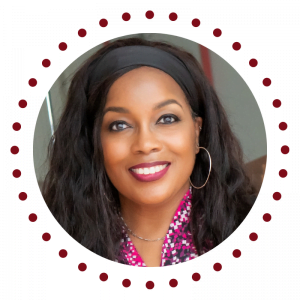
Want Karan to be Your Podcast Guest?
- Blended Workforces & the Gig Economy
- Critical Execution Tactics of High-performing Leaders
- Entrepreneurism & Leading Your Business

Want to be a Podcast Sponsor?
All sponsorships come with a featured spot on show notes pages.
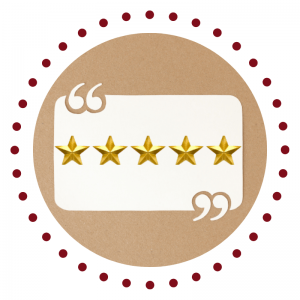
Like the Show? Please Leave a Review
If you like the show, it would mean the world to her if you left a quick review.
Your word is golden, so a HUGE thank you in advance!

#KeepInTouch
via our podcast alerts
Subscribe now to discover why thousands of monthly listeners who are passionate about doing their best work prioritize time each week to listen to the Blended Workforces @Work podcast.
#AboutSDL
#WhereToFindUs
MAILING
4480-H South Cobb Drive
PMB 219
Smyrna, GA 30080
PHYSICAL
2121 NewMarket Parkway
Ste. 108
Marietta, GA 30067
#ContactOptions
Customer Service Email:
service@shockinglydifferent.com
Call or Text:
770-384-1103
#Office Hours
MON-FRI
8:30 AM – 6:30 PM
Weekends By Appointment

